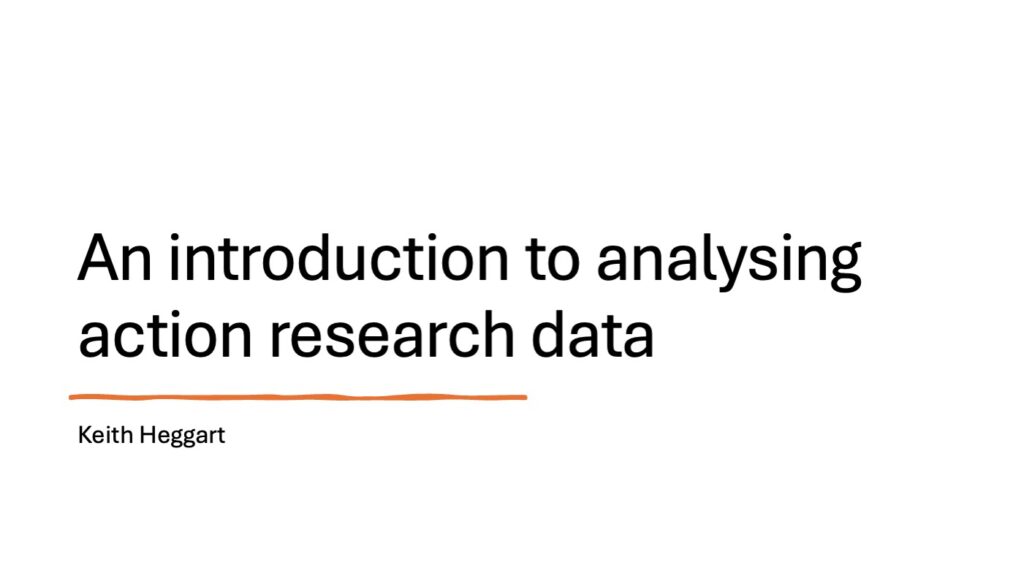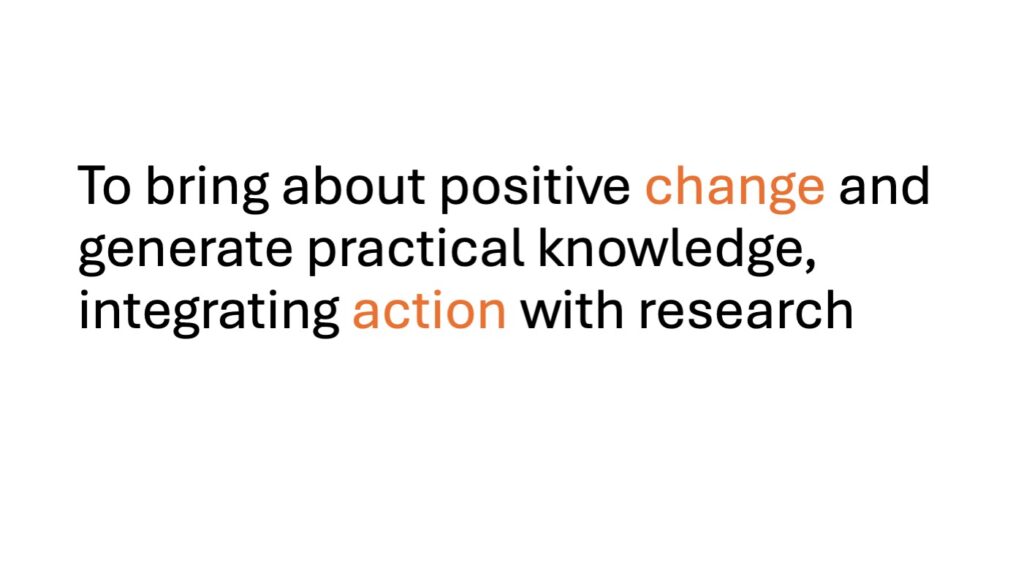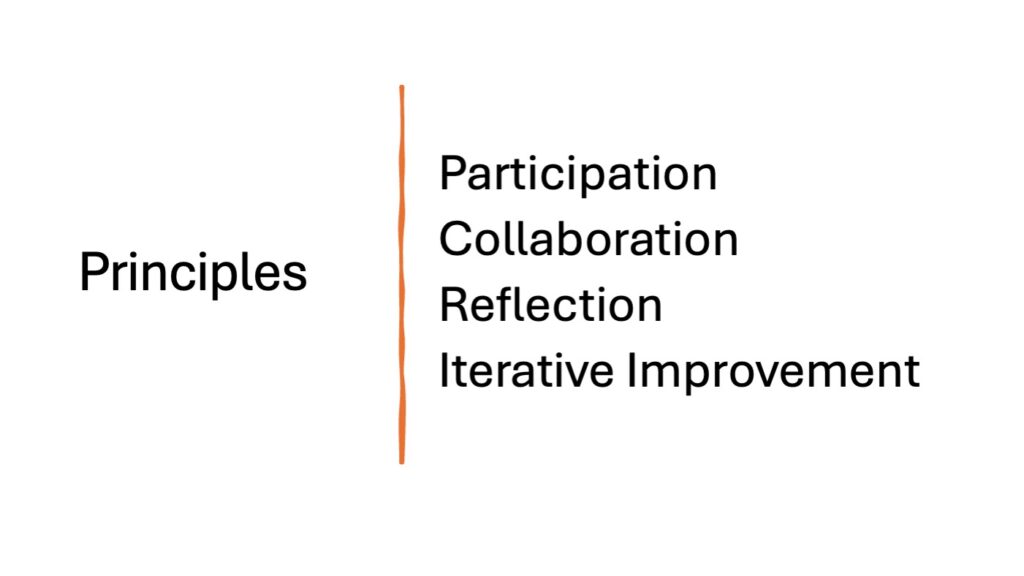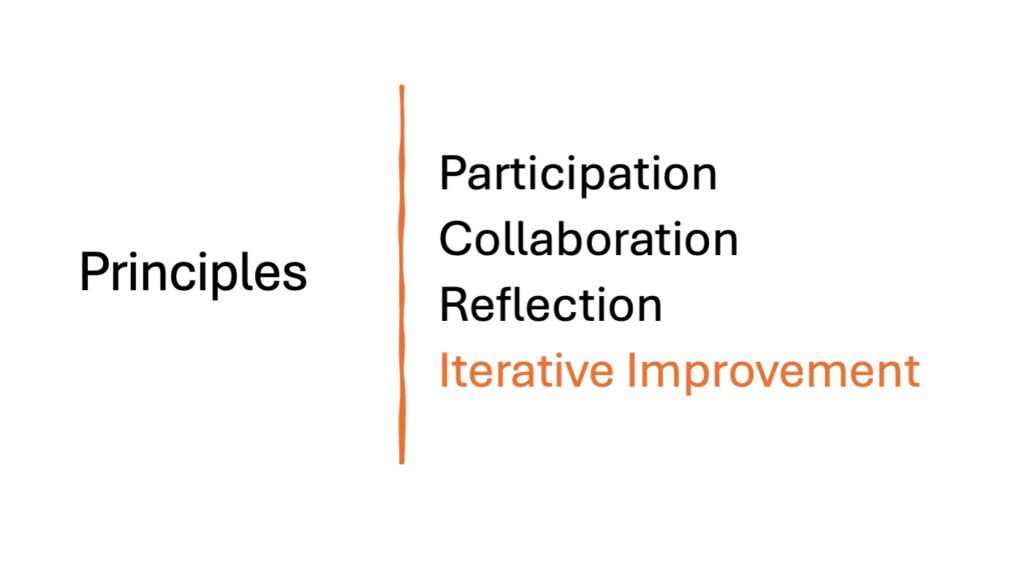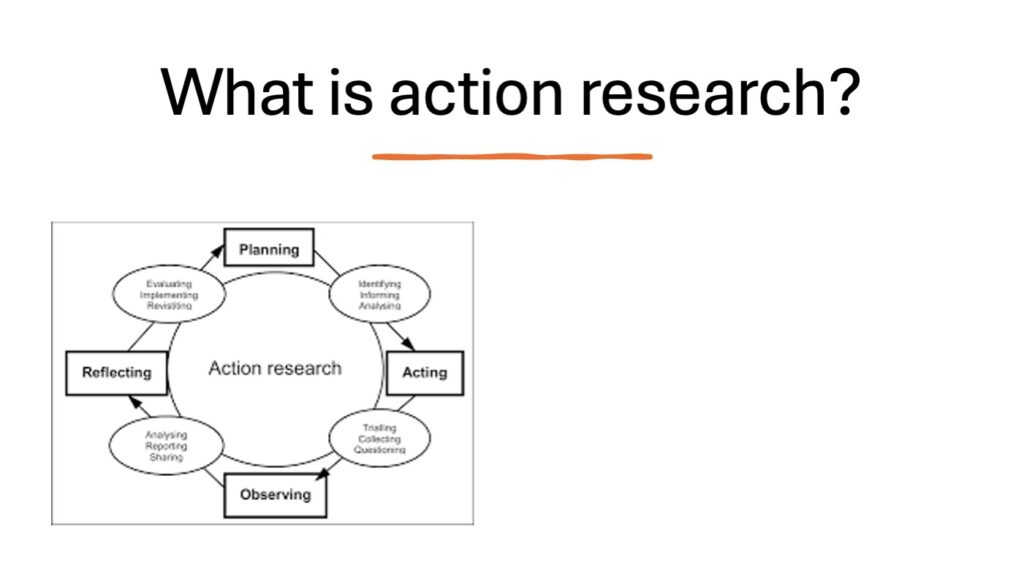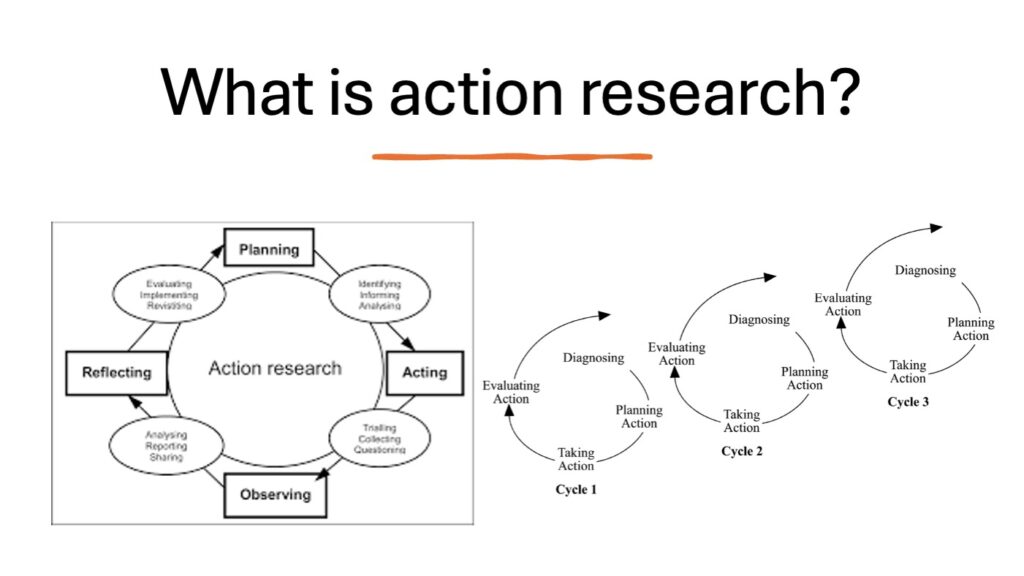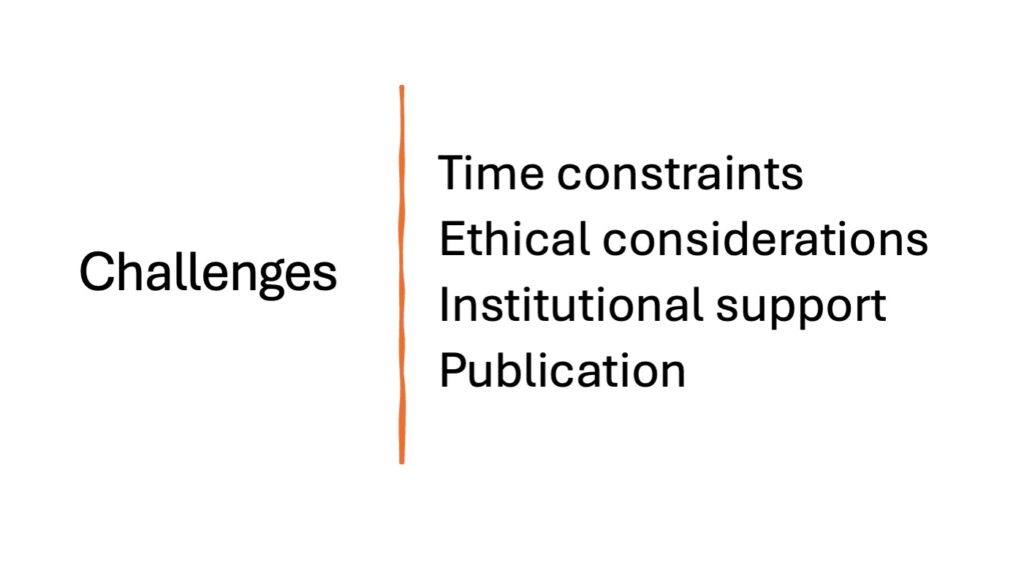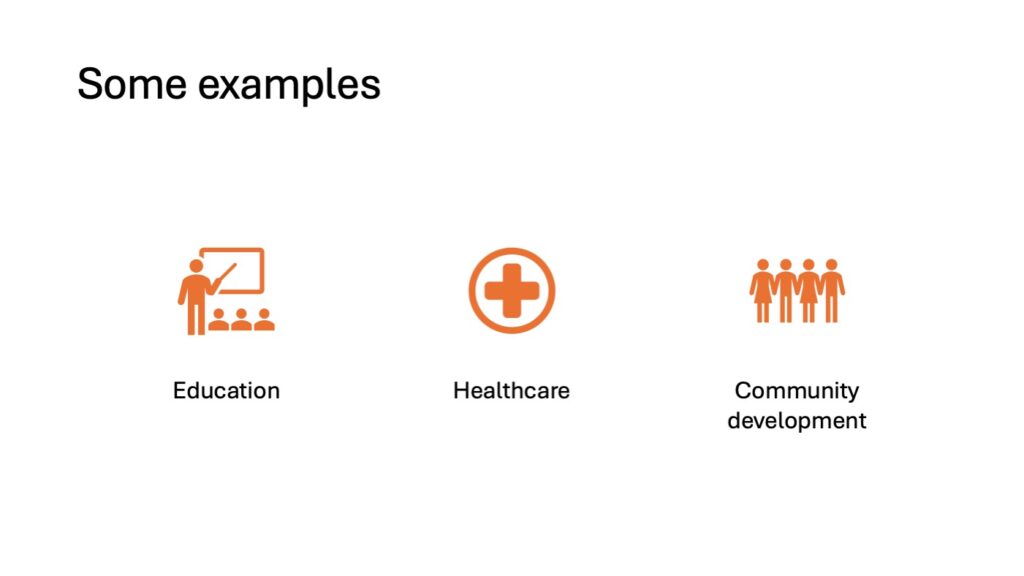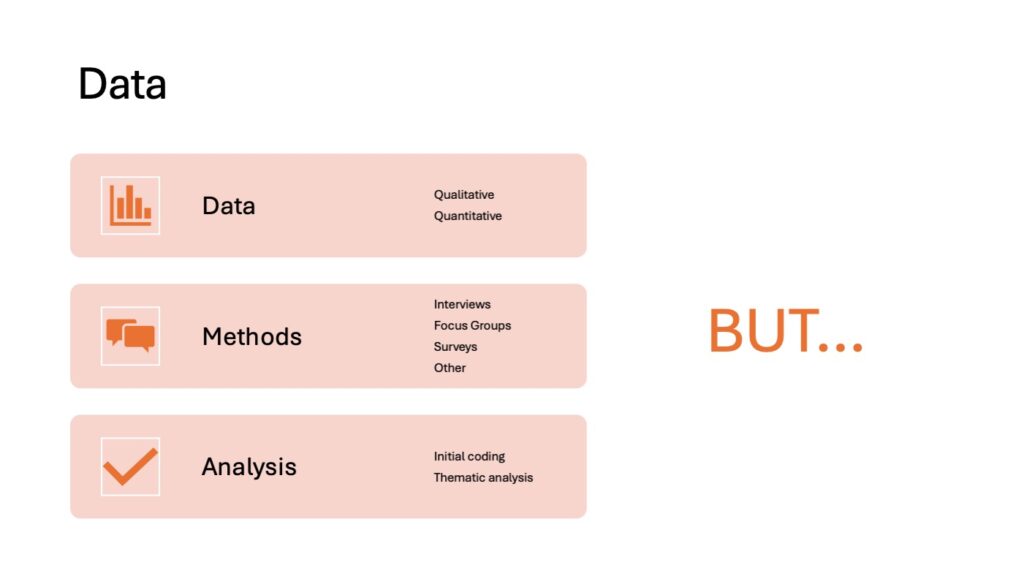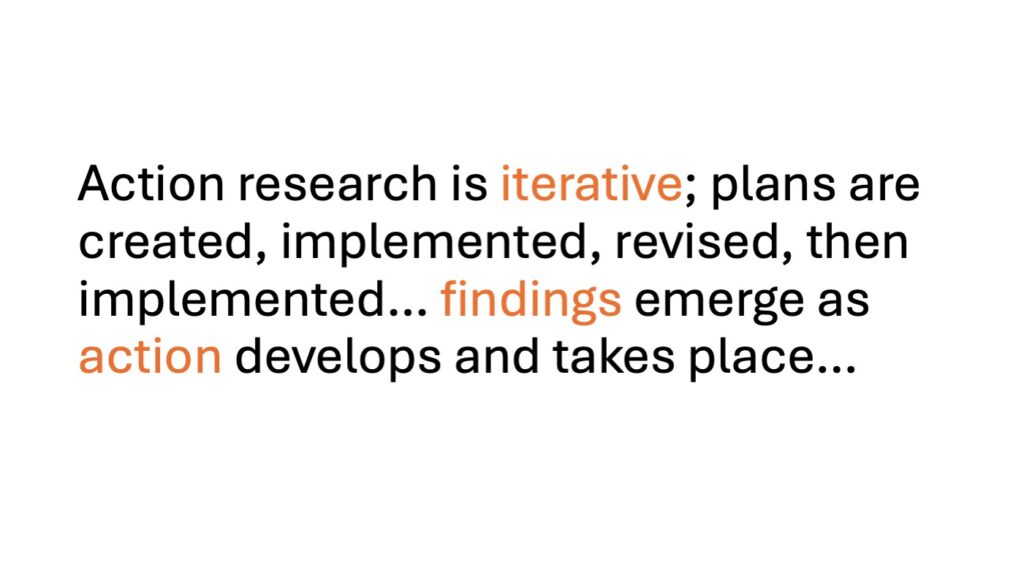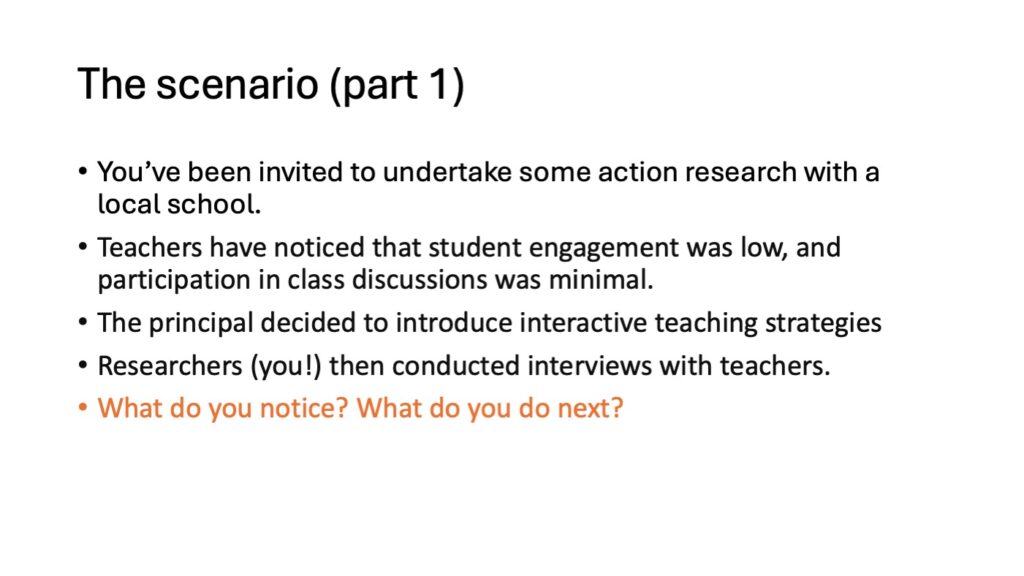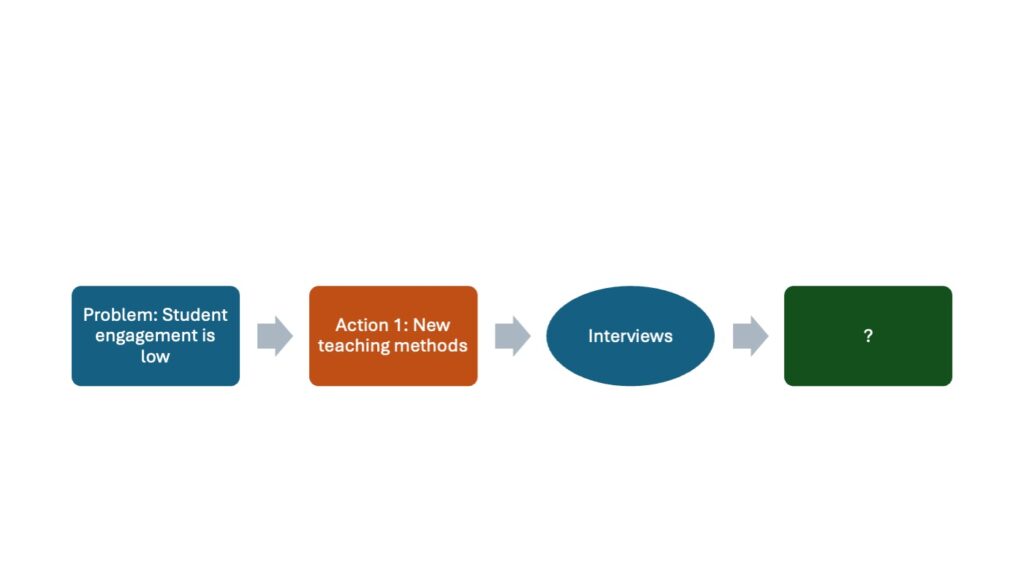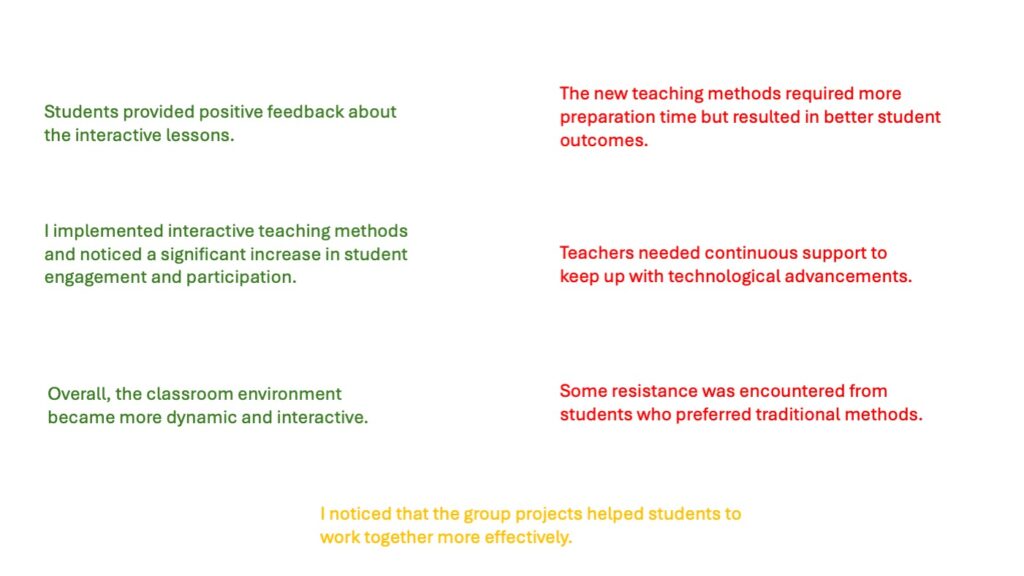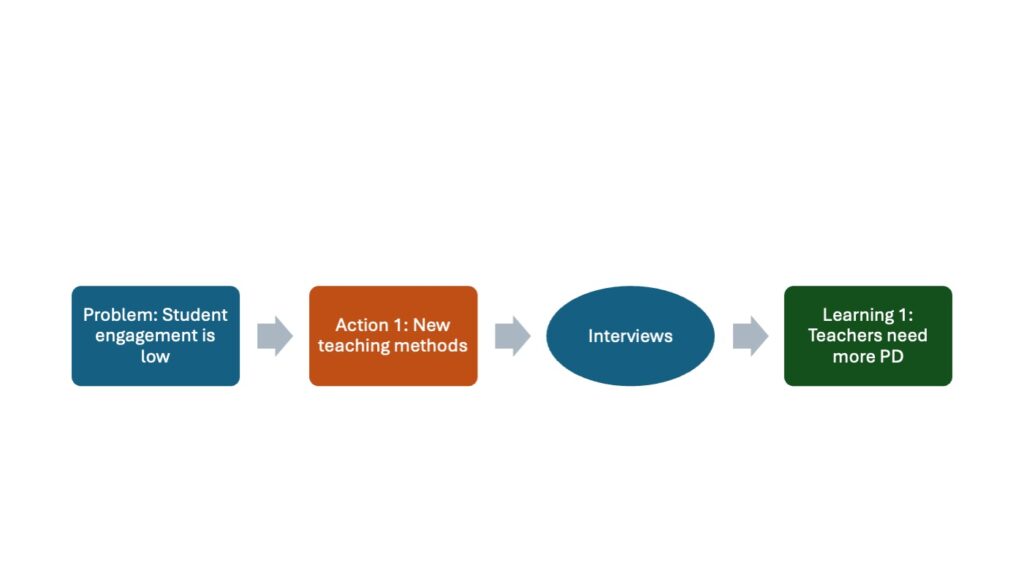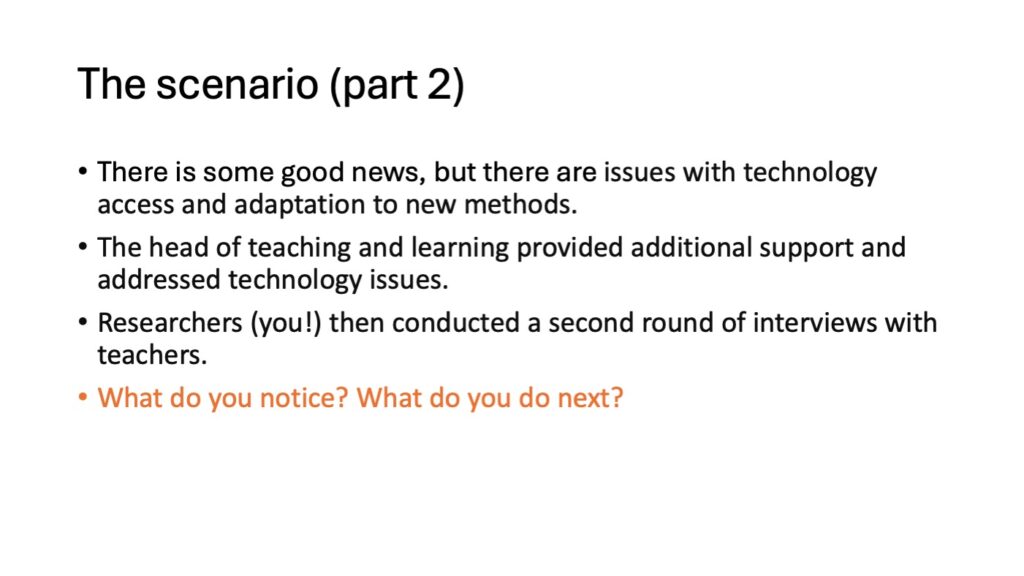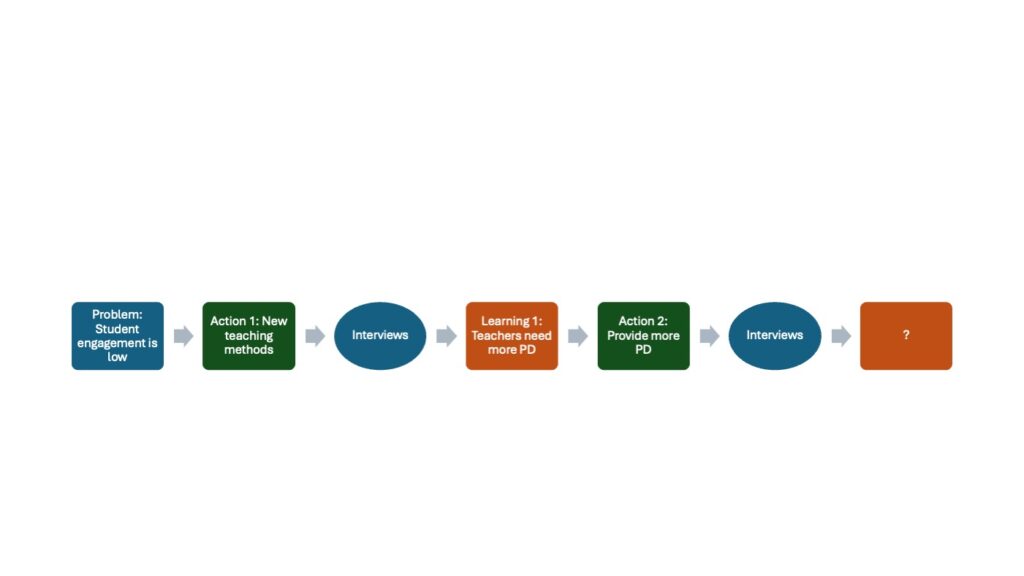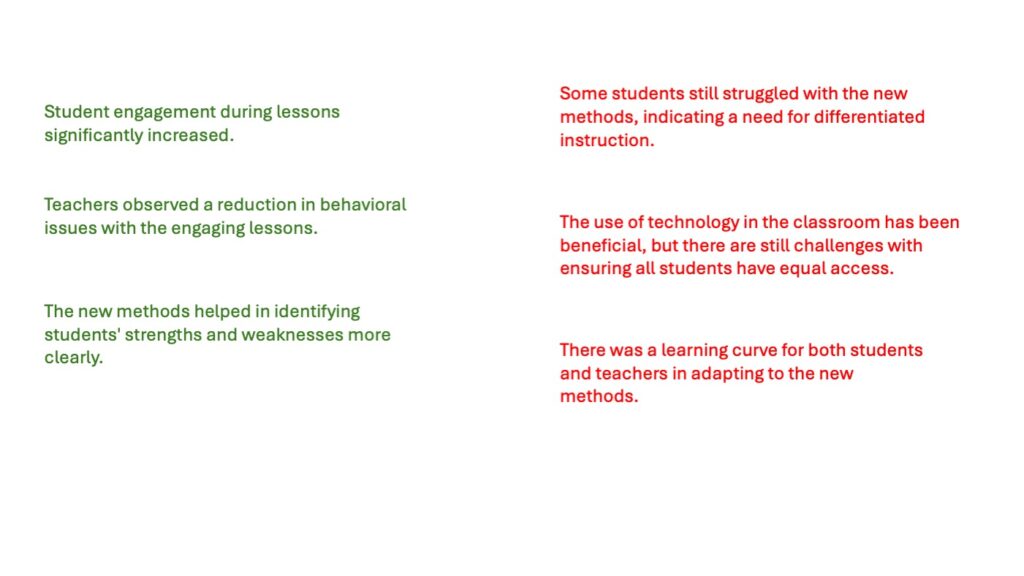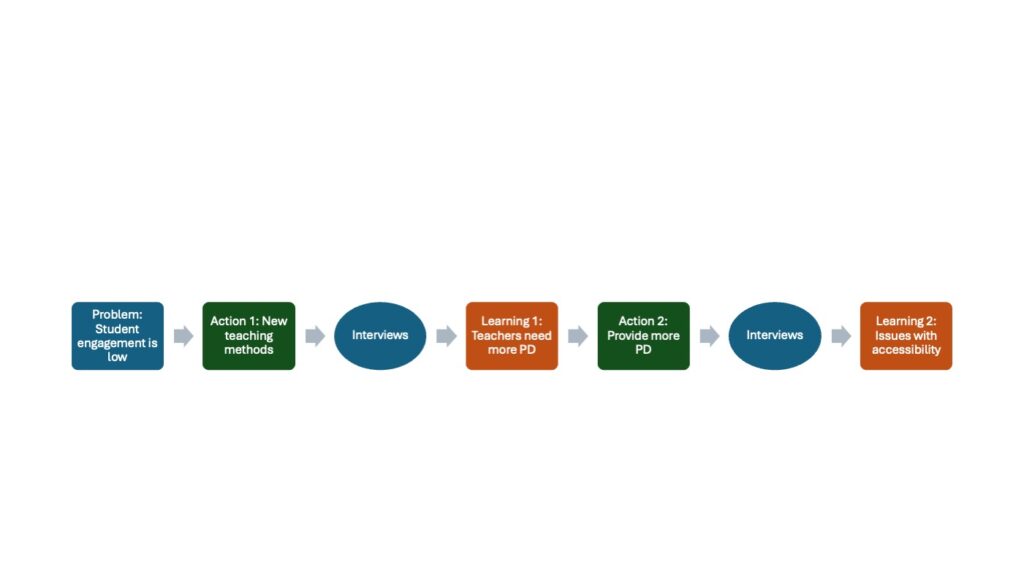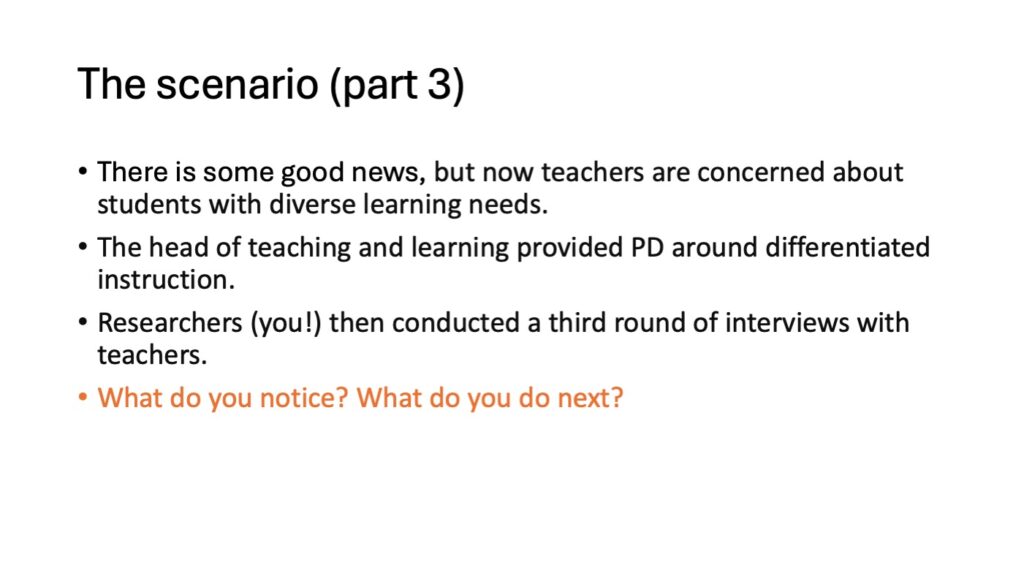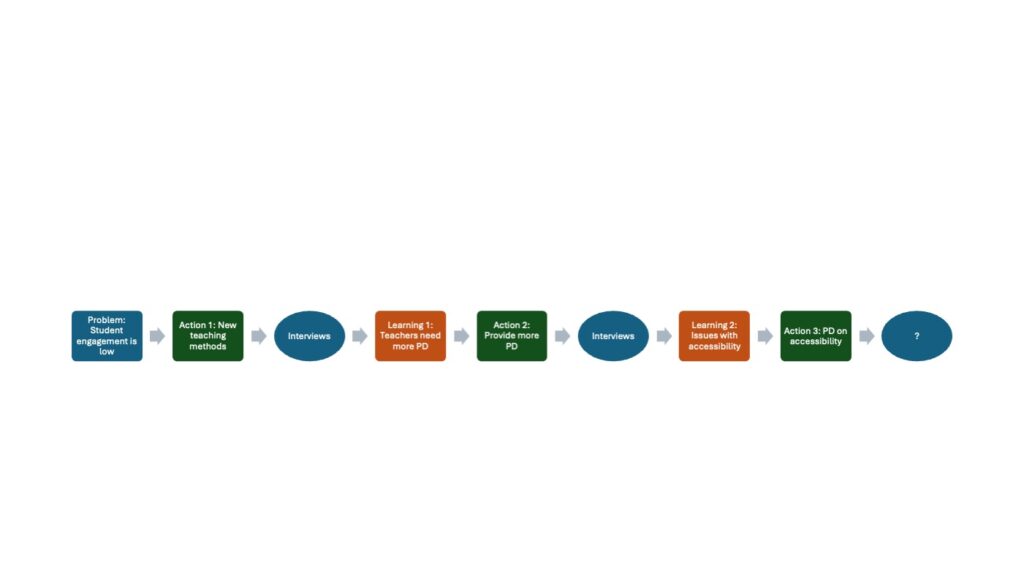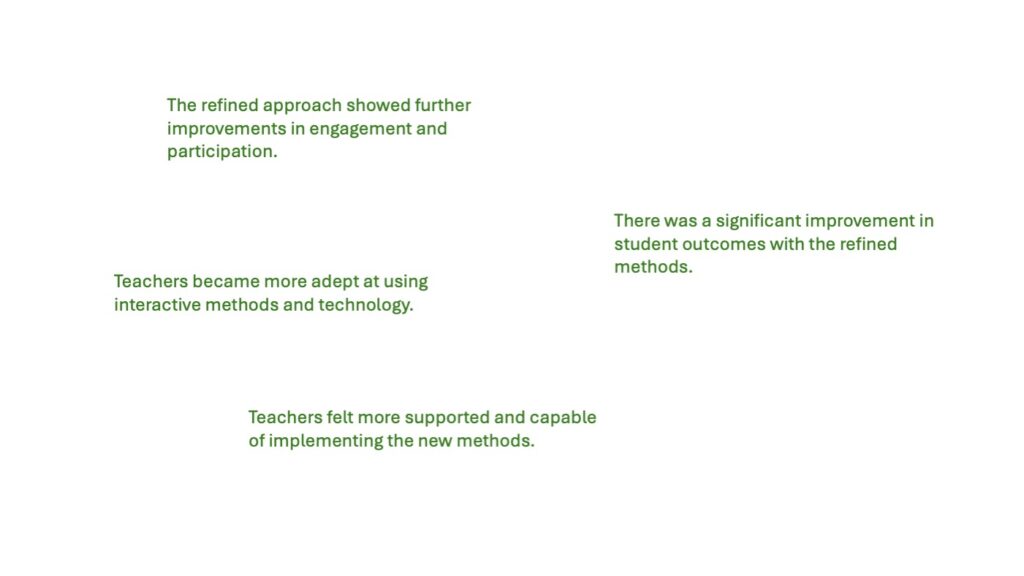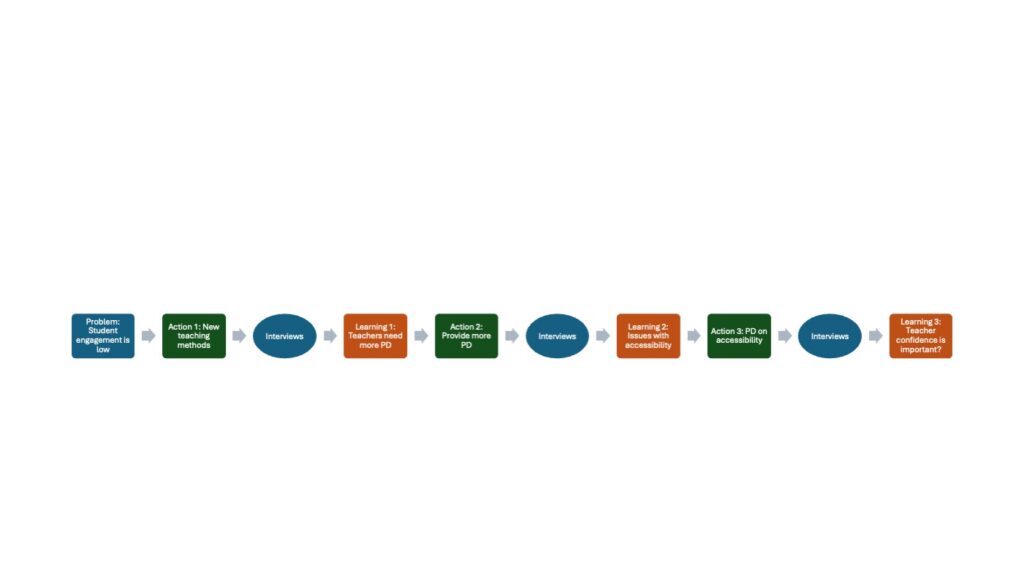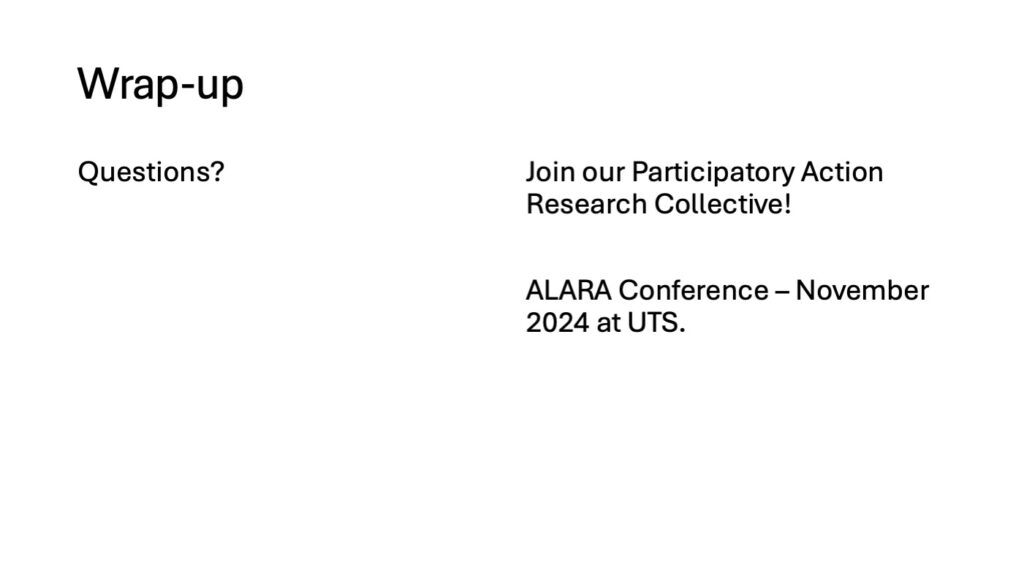Action research is a powerful approach for educators and professionals looking to create real-world, practical improvements. During a recent workshop, we explored the fundamentals of action research and how to effectively analyze the data it generates. Here’s a summary of the key takeaways.
What is Action Research?
Action research is a cyclical, participatory process designed to solve real-world problems while generating knowledge. Unlike traditional research, it actively involves stakeholders, ensuring the relevance and applicability of the research outcomes. At its core, action research integrates four guiding principles:
• Participation: Stakeholders are actively involved in the process, ensuring the research remains grounded in practical, real-world contexts.
• Collaboration: Power and decision-making are shared between researchers and participants.
• Reflection: Continuous reflection is critical to understanding the impact of the actions taken.
• Iterative Improvement: The research follows a cyclical process of planning, acting, observing, and reflecting to create continuous improvement.
The Challenge of Action Research
Action research presents some unique challenges, particularly:
• Time Constraints: Balancing action research with academic or professional responsibilities can be difficult.
• Ethical Considerations: Ensuring informed consent, protecting participant privacy, and maintaining ethical standards throughout the research process.
• Institutional Support: Often, there is a lack of funding and resources, which can hinder the success of action research projects.
• Publication: Publishing action research in traditional academic journals can be challenging, as the cyclical and participatory nature of this approach doesn’t always fit neatly into conventional research formats.
Examples of Action Research in Practice
To illustrate the power of action research, we explored a range of examples from different fields:
• Education: Improving student engagement through interactive teaching methods.
• Healthcare: Enhancing patient care practices through data-driven interventions.
• Community Development: Solving local challenges, such as neighborhood safety, by involving community members in the research process.
These examples underscore the practical, problem-solving nature of action research and its adaptability across different fields.
Analyzing Action Research Data
Data analysis in action research typically involves both qualitative and quantitative methods:
• Qualitative Data: Interviews, focus groups, and observations provide deep insights into the experiences of participants.
• Quantitative Data: Surveys and assessments allow for measuring changes and improvements over time.
The process of analysis begins with initial coding to identify key themes and patterns, followed by thematic analysis to group related codes into broader themes. Reflection on the implications of the findings is a crucial part of this process, helping to guide future action and research cycles.
Scenario-Based Learning: Applying Action Research in Real-Time
During the workshop, participants were given the opportunity to engage with a real-world scenario. In the scenario, a local school was facing challenges with low student engagement and participation in class discussions. Through interviews and data collection, participants identified new teaching methods, professional development (PD) needs for teachers, and accessibility issues as key areas of focus.
As the scenario unfolded, participants used the iterative cycles of action research—taking action, gathering data, reflecting, and planning the next steps. This hands-on approach allowed them to see the dynamic nature of action research and how it can drive meaningful change.
Conclusion: The Power of Reflection and Collaboration
Action research is not just about gathering data—it’s about creating positive change and improving practices in real-world settings. By fostering collaboration, encouraging continuous reflection, and committing to iterative improvement, action research offers a powerful way to tackle complex problems across various sectors.
If you’re interested in learning more or getting involved in action research, consider joining our Participatory Action Research Collective, or look out for the upcoming ALARA Conference in November 2024.
I’ve been experimenting with workflows related to ChatGPT and my presentations. This post was written, in part, by ChatGPT.
